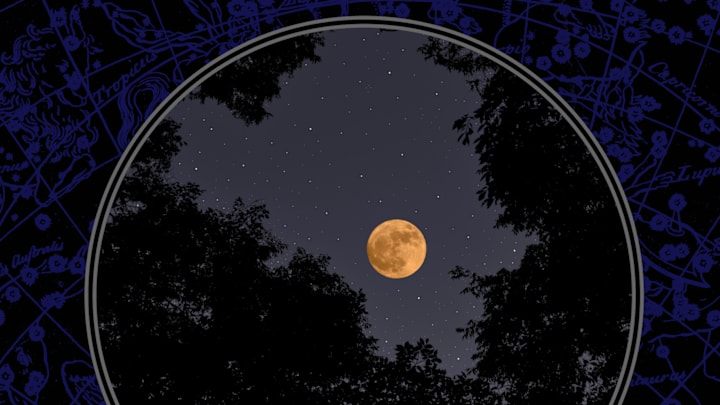This summer's fireworks shows will have to compete with another spectacle in the night sky. On the evening of July 3, 2023—one day before Independence Day— we will be treated to a super buck moon. It's one of just four super moons making an appearance this year. Here's everything you need to know to make the most of the event.
What Is a Super Buck Moon?
As the name suggests, a super moon looks especially large and bright in the night sky. On Monday, July 3, the moon will enter its full phase at the same time it reaches its perigee, or the closest point in its orbit to Earth. According to the Almanac, July's super moon will appear roughly 7 percent larger than a typical full moon.
The super moon is also a buck moon, which is the nickname for the first (and usually only) full moon of July. Like the other seasonal names assigned to full moons throughout the year, the name buck moon derives from nature. July is typically the time when the antlers on male deer (a.k.a. bucks) reach their peak size.
How to See the Super Buck Moon
The super buck moon reaches full illumination at 7:39 a.m. ET on Monday, July 3. The moon will be below the horizon at that time in many parts of the world, but that's not a problem; it will still look extra big and bright when the sun goes down later that day.
Around sunset, keep your eyes trained on the southeastern horizon. You'll be able to spot the super moon rising in the evening sky—possibly accompanied by fireworks displays, if you're watching in the United States. Skygazers who miss July's super moon will have a chance to catch another one in late August. That one will be the biggest and brightest super moon of 2023.
A version of this story ran in 2022; it has been updated for 2023.
